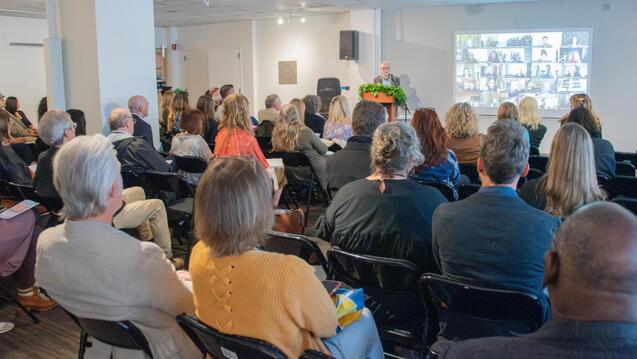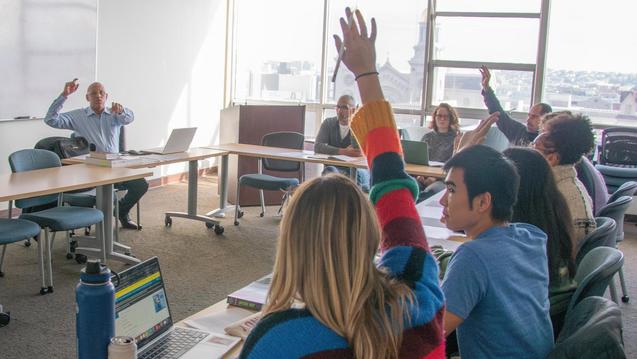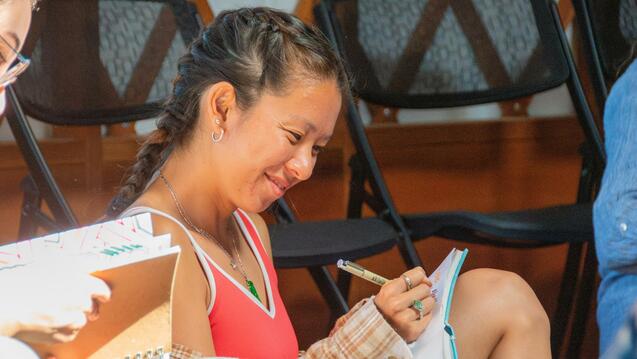Over 370 participants gathered at CIIS to honor Jung’s 150th birthday in a transformative exploration of psyche, purpose, and collective healing.
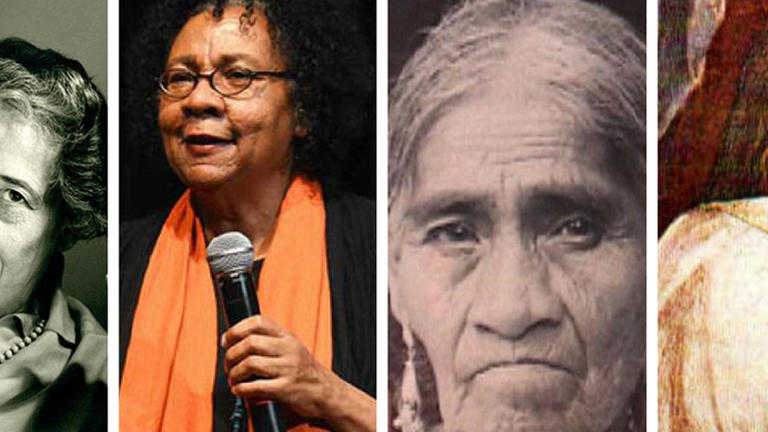
Eleven Important Women You Should Know About
Check out this list curated by the Women's Spirituality Program
In honor of Women's History Month, the CIIS Women's Spirituality program has curated a list of women you should know about from across the globe. It was difficult to keep the list to just the 10. In fact, we've included 11.
Johanna "Hannah" Arendt
is widely considered one of the most important political philosophers of the twentieth century. A German-born Jew who left Nazi Germany in 1933, she authored 18 books and numerous articles that have influenced contemporary political theory.
"In an ever-changing, incomprehensible world, the masses had reached a point where they would...think everything was possible and that nothing was true."
Chandra Alexandre
is the founder of the nonprofit religious and social justice organization Sharanya, celebrating 20 years of its Shakta Tantric lineage and ongoing work to dismantle oppressions of soma, psyche, and spirit through the practices and devotions of engaged spirituality. Chandra earned her MA in Women's Spirituality and her Ph.D. in Asian and Comparative Studies.
"If you seek justice or care about justice in practice, then it is imperative to do what's necessary to defy the limitations in you and around you that bind you to injustice. Whatever keeps you from the truth must be defied."
Heide Göttner-Abendroth
is a founder of the academic field of Modern Matriarchal Studies, which identifies still-existing matriarchal patterns in Asia, Africa, and the Pacific area. She is a distinguished adjunct professor in the CIIS Women's Spirituality program.
"Contrary to common belief, none of these matriarchal cultures is a mere reversal of patriarchy. Rather, they are all gender-egalitarian societies and many of them are fully egalitarian. This means they have no hierarchies, classes nor domination of one gender by the other."
Ella Baker
African-American civil rights and human rights leader Ella Baker worked with Martin Luther King Jr. to develop the plan for the Southern Christian Leadership Conference, helped organize the sit-in movement, and served as a mentor to a generation of civil rights leaders.
"Until the killing of black men, black mothers' sons, becomes as important to the rest of the country as the killing of a white mother's son, we who believe in freedom cannot rest until this happens."
Sappho
in antiquity, was considered by many to be one of the greatest poets. Just as Homer was often referred to as "the Poet," she was called "the Poetess." Called "the Tenth Muse" by Plato, she was honored with statues and coins.
"You may forget but let me tell you this: someone in some future time will think of us."
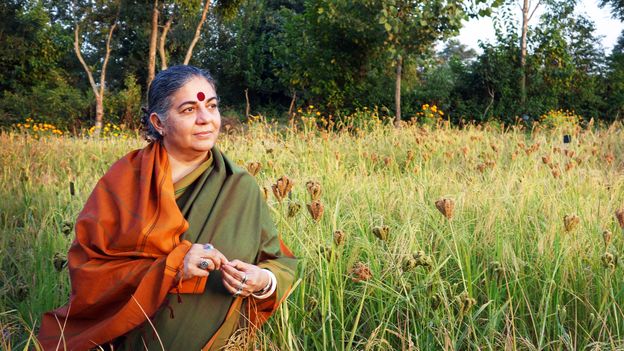
Vandana Shiva
is an Indian scientist, environmental activist, food sovereignty advocate, and author of over twenty books. She is a leader and board member of the International Forum on Globalization and a prominent figure in the alter-globalization movement, a global solidarity movement that seeks global cooperation while avoiding the negative effects of globalization. She is a member of the scientific committee of the Fundacion IDEAS, Spain's Socialist Party's think tank. In 1993, she received the Right Livelihood Award, an honor known as an "Alternative Nobel Prize."
"We are either going to have a future where women lead the way to make peace with the Earth or we are not going to have a human future at all."
Maria Sabina
was a contemporary Mexican curandera (a traditional native healer) who is best known in the West for allowing Westerners to participate in a healing and purification vigil in which they ritually consumed psilocybin mushrooms as a sacrament to commune with the sacred.
"There is a world beyond ours, a world that is far away, nearby, and invisible. And there is where God lives, where the dead live, the spirits and the saints, a world where everything has already happened and everything is known. That world talks. It has a language of its own. I report what it says. The sacred mushroom takes me by the hand and brings me to the world where everything is known."
Hypatia
sometimes called the "female Plato," was a famous Hellenistic Neoplatonist philosopher, astronomer, and mathematician. She was the head of the Neoplatonic School at Alexandria, where she taught philosophy and astronomy.
"All formal dogmatic religions are fallacious and must never be accepted by self-respecting persons as final."
Riane Eisler
is President of the Center for Partnership Studies and internationally known as a systems scientist, an attorney working for the human rights of women and children, and author of groundbreaking books such as The Chalice and the Blade: Our History, Our Future, now in 26 foreign editions, and The Real Wealth of Nations: Creating a Caring Economics. Riane Eisler is a distinguished adjunct professor for CIIS.
"Women represent 70 percent of the 1.3 billion people in our world who live in absolute poverty. Consequently, as Joan Holmes, president of the Hunger Project, points out, any realistic efforts to change patterns of chronic hunger and poverty require changing traditions of discrimination against women."
Charlene Spretnak
is the author of 9 books on cultural history, social criticism (including feminism and Green politics), and religion and spirituality. Her book Green Politics was a major catalyst for the formation of the U.S. Green Party Movement, of which she is a co-founder. In 2006, she was named by the British government's Environmental Department as one of the "100 Eco Heros of All Time." In 2012 she received the Demeter Award for lifetime achievement as "one of the premier visionary feminist thinkers of our time." She is a professor emerita of the Women's Spirituality program at CIIS.
"The goal of feminist spirituality has never been the simple substitution of Yahweh-with-a-skirt. Rather, it seeks in all its diversity to revitalize relational, body-honoring, cosmologically grounded spiritual possibilities for women and all others."
bell hooks
is an American author, feminist, and social activist. The focus of Hooks' writing has been the intersectionality of race, capitalism, and gender, and what she describes as their ability to produce and perpetuate systems of oppression and class domination. She has published over 30 books and numerous scholarly articles, appeared in documentary films, and participated in public lectures. In 2014, she founded the bell hooks institute at Berea College in Berea, Kentucky.
"No other group in America has had their identity socialized out of existence as black women... When black people are talked about, the focus tends to be on black men; and when women are talked about, the focus tends to be on white women."
Related News
Your roadmap to becoming a licensed clinical psychologist through CIIS' integral, holistic approach to doctoral training and professional practice.
Discover your fit among CIIS' five counseling psychology concentrations, each offering a unique path to becoming a transformative healer.

